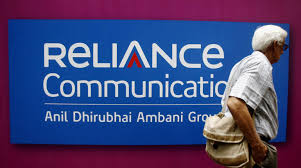Reliance launches fibre broadband, after disrupting India’s telecoms market

MUMBAI (Reuters) – Reliance Industries, which has upended India’s telecoms sector with its cheap mobile data plans, launched its fiber broadband system on Thursday in a push to make deeper inroads into the country’s wireless and fixed-line internet industry.
Reliance Chairman Mukesh Ambani, India’s richest man, said the company will begin registrations for its fiber-to-home service from Aug. 15, India’s Independence Day.
“India is ranked quite low at 134th in the global ranking for fixed broadband … Jio is determined to move India to among the top 5 in fixed-line broadband,” Ambani told shareholders at the oil-to-telecoms giant’s 41st annual general meeting (AGM).
Jio, Reliance’s telecoms venture, is a key plank of Ambani’s long-term vision to make consumer-facing businesses as big as the company’s core oil-and-gas business that currently accounts for 90 percent of its revenues.
Since its launch in 2016, Jio has roiled India’s telecoms sector by offering free calls and cut-price data plans, forcing rivals such as Bharti Airtel to respond with price cuts of their own and spurring consolidation.
Jio now has 215 million subscribers and is on track to cover 99 percent of the country, Ambani said.
Reliance’s new fiber network, JioGigaFiber, will be rolled out in 1,100 cities and will potentially connect 50 million homes, enabling consumers to use smart solutions such as real-time surveillance and connected devices, Ambani said, without giving any pricing plans.
Shares in rival Indian firms that offer home broadband services fell after Reliance unveiled JioGigaFiber. DEN Networks closed down about 10 percent, while Hathway Cable and Datacom ended about 15 percent lower.
NEW REVENUE STREAM
The plan to launch fiber broadband opens up a new revenue stream for Reliance under its Jio venture. The company has already invested around $ 36 billion in its telecoms initiative.
While Ambani reiterated the company’s focus on high-margin petrochemicals business, local brokerage Sharekhan, which is owned by BNP Paribas, hailed the JioGigaFiber launch as “a step in (the) right direction”.
Reliance has been testing its broadband service in some cities, offering what it says is faster internet connectivity than regular broadband where speed is less as the fiber reaches only up to the building and not directly into homes.
The company has also been betting on acquiring content to fuel data consumption in a country of over a billion mobile subscribers. It has invested in Eros, Indian production house Balaji Telefilms and music app Saavn.
Billionaire Ambani said the company was targeting 100 million users for its internet-enabled JioPhone that now also supports Facebook, WhatsApp messenger and YouTube.
Reliance last year launched the JioPhone, which allowed digital payments and was effectively free: buyers could get a device for a refundable fee of 1,500 rupees.
The Mumbai-headquartered company said a JioPhone 2 worth at 2,999 rupees ($ 43.50) will be available from Aug. 15.
Reliance, which runs several grocery, electronics and fashion stores across India as well as an online fashion portal, plans to digitize its retail network using Jio’s network.
Reliance shares have surged nearly 83 percent since Sept. 1, 2016, the day its telecom service was launched. Jio turned a profit within a year of its operation.
“From here onwards, it will depend on the profitability of Jio,” said a fund manager, whose mutual fund owns Reliance shares. “That will either make or break the stock.”
Reliance shares closed 2.6 percent lower in a broader Mumbai market that ended down 0.19 percent.
